This is it. This is going to be your year.
Perhaps you, too, have the sense that good things lie just beyond the horizon, whether you’re hoping to find more energy and increased strength, deeper serenity and better balance, or an improvement in your overall physical health and mental wellness. Perhaps the only problem is: you don’t exactly know how to get there.
To help you take that first step on the road to realising your health-related goals, we turned to a host of top experts, asking them to share their most valuable advice for enhancing your wellbeing in meaningful ways this year. Here is what they said.
“For those looking to improve their health and wellbeing this year, my slightly unusual recommendation is to strengthen your ‘no’. Most of us have been socialised to be people-pleasers. We say ‘yes’ to all sorts of things we do not want. This year, aim for increasingly authentic responses, and ground your integrity by speaking your truth clearly and compassionately. Understand that when you say ‘no’ to things you don’t want, it creates space and time for the things you do. It is in those spaces that your mental and physical health will find a new playground and flourish!”
Neil Seligman, Mindfulness Expert
“Learn to feel your body and your emotions, and be open and vulnerable to those sensations. Take complete ownership of them. Avoid blaming others, distracting yourself or engaging in avoidance, and see it as your best opportunity for personal growth. If you don’t yet have the tools to heal and grow through it, then go out there and find someone who can help you help yourself. Meanwhile, always stay grounded, learn to manage your energy better, and no matter how much you know (or think you know), be as authentically humble as you can be.”
Will Williams, Meditation Expert
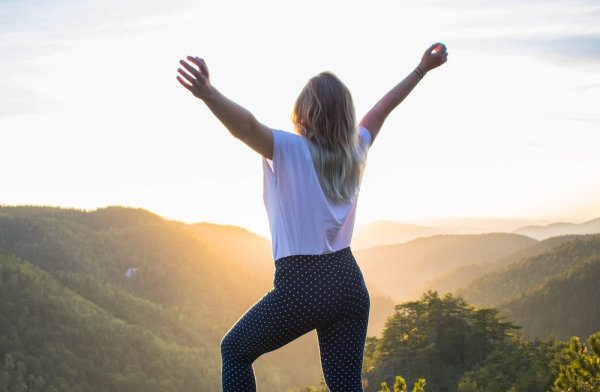
“I recommend practising a low-dopamine morning routine. We think of dopamine as a feel-good chemical that makes us happy, so why would we benefit from a low-dopamine morning? I see it as not so much less dopamine, but more peace. Starting the morning more peacefully can mean that we are much more productive in the areas we want to be.
“One of the key activities I'd recommend is usually the one we find hardest as humans: to do nothing. Most importantly, don’t look at your phone, laptop or iPad for the first 45 minutes of the day. The moment we do, we start to become reactive to external factors – work emails, news, social feeds, etc. We start to run on cortisol the moment we look at our devices, and it will often dictate what you do next, regardless of what you had in mind for yourself.
“Even if all you do is eat breakfast, have a cup of tea and take a shower, it will ground you in a completely different way. It's massive. And it sets your intent out for the day, to yourself and to others. You will be responsible for how you feel, not others.”
Ross Barr, Expert Acupuncturist
“Without a doubt, look after your gut microbes. The incredible world of the gut microbiome – the trillions of beneficial bacteria and other microorganisms that live in our gut – influences, directly or indirectly, virtually every system in the human body by producing compounds that heal and balance the body and brain for optimal health. So feed your microbes well and stop poisoning them!
“They thrive on the 3Fs: fibre, fermented foods and fasting. Aiming for 12 hours of fasting every night is safe for everyone, and for some people, the fasting window can be extended up to 14 or 16 hours a couple of days a week. The importance of polyphenol-rich foods is also becoming clear. Bitter, peppery-tasting and richly coloured foods and drinks such as chicory, radicchio, watercress, raw cacao, extra-virgin olive oil, Matcha green tea, berries, cranberries, pomegranate and soaked flaxseed all fuel some of the most important gut microbes. Avoid the usual suspects: highly processed foods, refined grains, sugar, alcohol.
“Lifestyle matters, too. Get plenty of sleep. Minimise chronic stress. Get outdoors in nature as much as you can. Exercise, but not to excess. Meditate, practise breathing techniques and observe moments of gratitude.”
Stephanie Moore, Expert Nutritionist
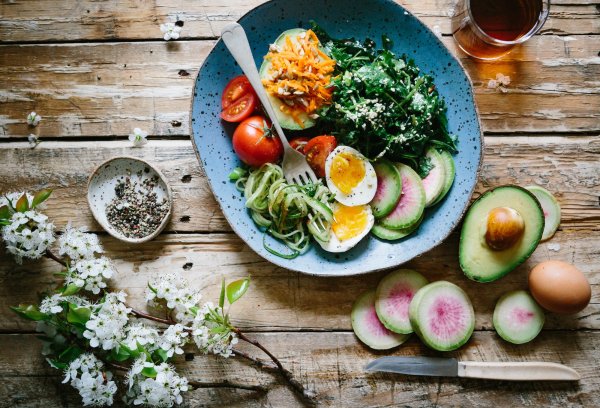
“Always try to eat with diversity and with an array of colours on your plate. This will cover all your bases without having to constantly Google whether you are meeting all your general nutritional requirements. A lot of people mess up, for example, by eating the same chicken salad for lunch every day and the same steak and potatoes for dinner every other night. You need to mix it up with what is seasonal to your environment, a different vegetable or fruit at every meal, and as many herbs and spices as you can get your head around. Be more adventurous – it will make everything tastier and more delicious, but most of all, it’s better for your health.”
Tytania Rose, Private Chef and Culinary Nutritionist
“Some of the most important advice is the most basic. Get enough sleep, full stop. Stay hydrated: this is super important if you’re cycling in 35C heat, but it’s important for everyone, in sport and in life. Small decreases in dehydration lead to large decreases in performance. Finally, eat mindfully. That doesn’t mean giving up wine or beer, coffee or tea, or the occasional pastry (though freedivers do that before and during competition). It means being aware of what you’re eating, choosing whole foods over fast and processed foods, and never allowing yourself to be under-fuelled. When exercising regularly, a few too many calories isn’t an issue; too few can be.”
Robert King, Expert Freediver
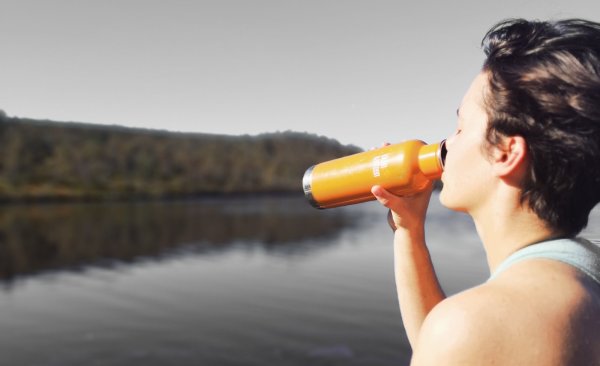
"My #1 piece of advice: every day, do one kind and thoughtful thing that is specifically for you – and do the same for someone else."
Gerad Kite, Master Acupuncturist
"First of all, I’d say that it’s best to start small; there’s no point in setting yourself huge goals that are unattainable. So if you’re a beginner in archery – or whatever pursuit you’ve chosen – or even more experienced, and would like to practise more, start with little and often. Set yourself a small, five-minute stretch routine that will target the muscles you’ll be using. Then, set a realistic goal for how many times you’d like to practise per week. What will you actually be able to do without adding stress to your existing routine?
“Secondly, basics are important! Remind yourself of the basics of your chosen activity; these will give you a great foundation for your practice. Don’t be afraid to ask for help!
“Next, breathe! There’s lots of evidence to show how effective meditation is for our wellbeing. If done right, archery can even be like a form of meditation. Practise breathing steadily, focus on your target, and feel yourself becoming calm and still. Then draw your bow and aim! These simple, achievable aims will transfer out into the rest of your life, and before you know it… zen and calm!"
Leander Pittis, Archery Expert
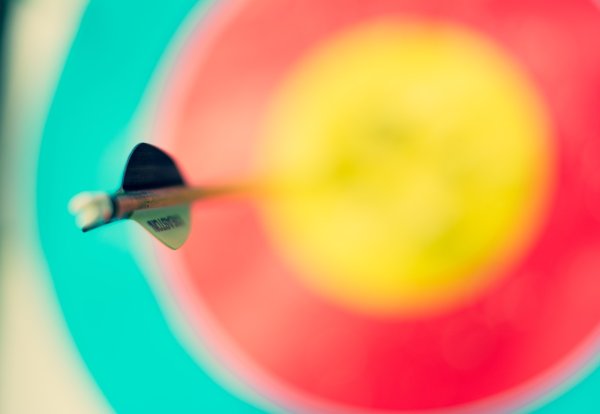
"Really make the time to do things that nourish your whole being. This can be through movement or taking time to be still."
Nic Gill, Kalaripayattu Expert
“It’s important to practise more awareness, and to cleanse the mind at the end of each day, making peace with the experiences of that day so that we are not carrying extra baggage, which then accumulates and stifles us.
“At night, as you are preparing for sleep, go back through the day. Maybe start with the last experience, for example if you spoke with or texted a dear friend, and say to yourself: ‘I make peace with this.’ Create that sense of peace. Breathe it in and release it. Let it be. Continue going backwards through the day. Certain experiences will stand out, and you may forget a lot – that’s okay. It can be a simple cup of tea, a smile from a child, breakfast, lunch with a colleague. Even the uncomfortable stuff – just acknowledge it all and make peace. With practise over a week, you will begin to experience how much you do in your day. You will find a sense of focus and an ability to be more present in your everyday life.”
Dorinda Rose Berry, Meditation Mentor and Energy Healer
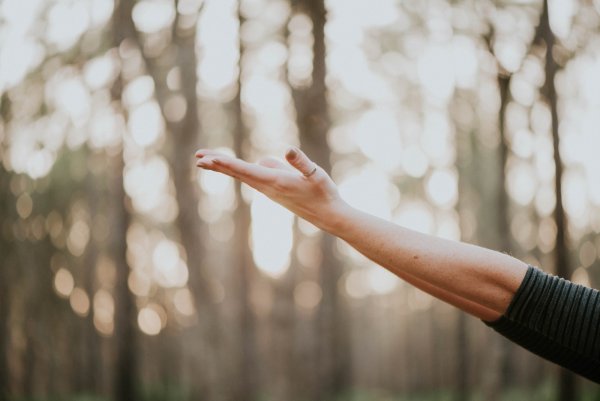
"Living in a fast-paced world, we must not forget about our health and physical activity. We should regularly take breaks to evaluate our behaviour patterns, to understand what serves us and what doesn’t. We should take a look at basics such as food, sleep and physical activity, which should nourish our body and mind so that we can find energy, joy and true purpose in our undertakings. Thinking about ourselves, we must not forget about other people around us, as well as our planet and nature."
Sankar Lal Sivasankaran Nair, Kalaripayattu Master and Ayurvedic Therapist
"Be realistic with the goals you set – unattainable goals will potentially end in failure. Remember that anyone can have goals, but it's the actions and process that achieves them ultimately.
“Focus on doing things you enjoy and will continue with, be that exercising or following a diet. And keep it simple. As soon as you over-complicate the process, it becomes more of a burden and you are more than likely to not follow through. Be consistent and persistent, but remember that perfection doesn't exist; build flexibility into your fitness and dietary plans. The best regimen is the one you will stick to.
“Finally, address your bad habits head on – the ones that are slowing your progress and hampering your results. You know exactly what they are. Write them down and focus on changing the top three that will have the biggest impact.”
Jamie Baird, Personal Trainer, Fat Loss and Fitness Expert
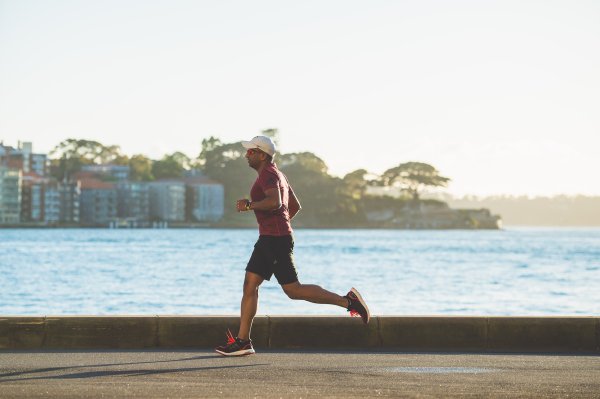
“My number one tip for the year would be: ‘be specific’. Be specific about what it is you want to get better at or feel healthier for, and get the advice of industry professionals to help you achieve this, where appropriate. So many people say they want to be healthier or fitter without spending the time to work out what ‘health’ or ‘fitness' means to them. Without this first bit of information, whatever health and wellbeing journey you go on is going to be less enjoyable and harder to stick to or achieve.
“Once you’ve worked out what it is you want, a secondary step is to then discuss why, because the route you take to get there will be coloured by the reasoning behind the choices. The easiest way to do this in a fitness context is to have a conversation with a professional and work out exactly what it is you’re after. If you do work with a trainer, ask more of them. If they can’t tell you why they’ve suggested something and relate it back to what you want, find someone better to work with. ‘You’re doing squats because they work for your legs and are good for you’ isn’t good enough anymore, and it never should have been."
Simon Green, Elite Personal Trainer
“We’ve focused on the crude concept of ‘body weight’ for too long, with little or no regard for muscle and its central role in health. This is especially the case for weight-loss diets that typically result not just in fat loss, but also muscle loss. Yet the evidence is now overwhelmingly clear that building and maintaining muscle mass, especially as we age, is one of the most profound things we can do to promote our health span. Indeed, we might do well to regard muscle as the ‘organ of longevity’.
“So, whatever your wellbeing goals this year, I encourage you to make muscle a priority. Appropriate resistance (muscle strengthening) training, paired with an optimal intake of dietary protein, and supported by specific nutritional supplements such as creatine monohydrate. These form the basis of the ‘muscle-centric’ strategies I use with great success with my clients.”
Glen Matten, Expert Nutritionist
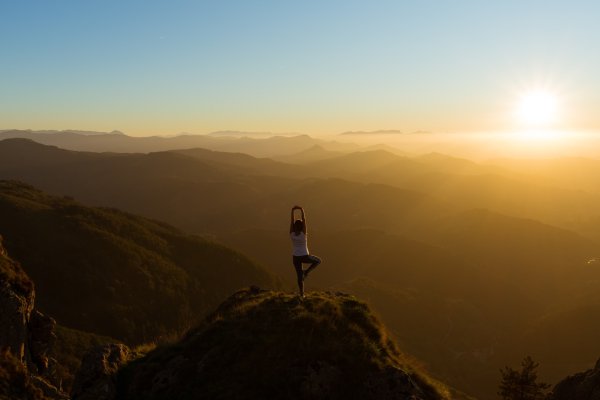
"I see playfulness as a great healing method, as well as togetherness with people who make us feel welcome and spontaneous. I think that the attitude towards our life and ourselves, to others and nature, are key elements to feeling better, instead of this or that remedy. I would say to keep a balance in experiencing hedonic wellness and eudaemonic wellness, zest and peace, enjoyment and meaning, relaxation and commitment, material and spiritual.
"Finally, meditation really helps – not as a performance or an exercise, but as a way to be with yourself and feel your life and your true essence."
Stefano Battaglia, Award-Winning Holistic Master Therapist, Retreat Leader and Meditation Teacher
RESPONSIVENESS: The entire concept of The Arc Circle™ is deliberately designed to take account of the ongoing Covid-19 pandemic.
COMPLIANCE: We work closely with all partners to ensure they rigorously follow the very latest Covid-19 protocols.
ADVICE: Members receive full support in understanding the latest Covid-19 guidelines and recommendations.
RESILIENCE: All our Arc Circle recommendations are planned to strengthen health prevention, immunity and general health.
SOLUTIONS: Members can depend on access to Covid-compliant solutions and Covid-safe destinations and escapes.
ADAPTABILITY: We will continue to provide members with the best advice and tailored solutions at every stage of the pandemic.